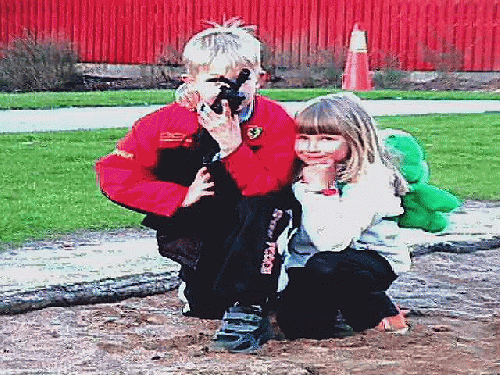"The level of children's well-being was assessed through measuring six factors: Material well-being; health and safety; education; peer and family relations; behaviors and risks; and self-perceived subjective well-being. Although northern European countries like the Netherlands did well on the overall score, "all countries have weaknesses that need to be addressed," said David Bull, director of UNICEF UK. "No country features in the top third of the rankings for all six dimensions," he said, referring to the factors considered. There are, however, clear losers. "The United Kingdom and the United States find themselves in the bottom third of the rankings for five of the six dimensions reviewed," UNICEF said in a summary of the report. Britain got the lowest overall score and ranked worst in family and peer relationships -- measured by single-parent rates and the frequency of family meals -- and behaviors and risks"
UNICEF report Feb 2007 Furthermore, in such a commercialized country as the U.S., the economical resources of ones' family or oneself determines so much of an individuals' opportunities to acquire good mental, social and physical resources (such as growing up in an environment that offers safety, good living standards, good education, positive inspiration and activities and time to enjoy this). That makes the findings that the divides in economic wealth between income groups is becomes both larger and more difficult for individuals to overcome, much more damaging in their consequences. A good summary of the nature and some of the consequences of this siphoning of the wealth to those who already have on the expense of those who have little or none is made by Lou Dobbs in his book "War on the Middle Class". "We're creating tomorrow's poor, people who once saw themselves as part of the middle class but financially can no longer make it there," said Elizabeth Warren of the Harvard Law School.(link ). There is also a further division of the people of society into economically unequal groupings as there is also an economic divide in this country between whites and people of color. Race still continues to play a significant role in the success of Americans, from jobs to education to housing. Racial stereotypes and attitudes heavily influence the job market, with African Americans at the bottom. So - a larger than ever and probably continuously growing percentage of the kids and the young ones will find themselves growing up in environments offering low-quality education, health care, "bad neighborhoods" with low rate of moral guidance and encouraging examples but heavy on bad role models, parents having to work hard to make ends meet or lacking a job - in either case risking personal and economical frustration and problems undermine their ability to be there for their kids as the primary source of love and security. True, Americans generally have many more possessions than in the past. But that results from all the household adults working Â- and usually longer hours on the job and at home Â- than in the past. So - more young ones are likely to experience a discrepancy between what they could have and should have on one hand, and what they actually are offered on the other. But more young ones are also less likely to experience and learn of things that makes them believe in their ability as individuals and as a collective to make a change. A lack of perceived ways to make a change, or a lack of awareness of what to target, or a lack of belief in ones' own ability to be of any significance in the way things are - any one of these circumstances deprives individuals of both the ability and their desire to act to change society and not just react to structures already in place only to make a living, not to make a change for more to get the chance to live better. If individuals believe they have little or no influence over society at large, if they have seen no encouraging examples they can identify with of such influence, then they will most likely focus on the society in small - look out for their own immediate and short-term survival. Add to this also the documented decrease of "social capital" - different networks of people cooperating in various ways that fosters trust, skills of and belief in cooperation as a way to achieve societal improvements - there is even more a risk of an increase in Individuals seeing little and experiencing even less of successful collective efforts aiming at improving life for more than just the own person. A youth of frustration but too few dreams and visions that can channel the wills into collective efforts - falling apart into increased individualism and "dog-eat-dog-world" thinking. Such a world of constant competition and constant fight for survival encourages escapism - what can not be changed must be endured and/or escaped. There will be lots of new residents for the virtual worlds.
America's Youth: Lost in Cyberspace |
|
| Rate It | View Ratings |

OpEdNews depends upon can't survive without your help.
If you value this article and the work of OpEdNews, please either Donate or Purchase a premium membership.
If you've enjoyed this, sign up for our daily or weekly newsletter to get lots of great progressive content.
Most Popular Articles by this Author: (View All Most Popular Articles by this Author)
The Silent Coup - How a nation ruled by law, becomes a nation ruled by men
What's wrong with the USA? It is really very simple...Updated
United States of America Inc.-the fall of a giant
United States America Inc. in Somalia
"If you thought George Bush was bad when it comes to the use of military force, wait 'til you see John McCain."
The Silent Coup Follow Up - The Role of Congress and Where To Go From Here
To View Comments or Join the Conversation:



